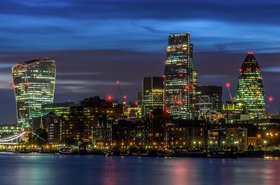Arthur C. Clarke said: "Any sufficiently advanced technology is indistinguishable from magic." And frankly, for data centers, that is a big problem.
Data centers are the cornerstone of the digital infrastructure that is changing everyone's lives - and yet for most people, they might as well not exist. Their phones work by magic, and the web is a mystical mechanism that delivers services from government and other institutions.
This is a problem, because you can't use a tool well if you don't understand it. Ignorant governments will legislate poorly, and ill-informed people may have a kneejerk reaction to potentially helpful neighbors.
Read all about it
Everyone deserves to understand data centers. When the press gets it right, governments will regulate the sector better, and make better economic decisions about it, while the public will engage constructively with the facilities they live alongside.
But that won't happen unless good information and true representations of the issues in the sector reach the public through the media they follow. We believe DCD does a good job of explaining the issues, and sometimes the public finds our stories, but we have to admit that we are addressing the specialist audience that already understands the importance of the sector - not least because their jobs depend on it.
It's a very different job to make those issues come alive to an uncommitted audience. This year the DCD Awards include a special public vote for the mainstream media story which does the best job of presenting a crucial data center issue to a wider audience.
The Best Mainstream Press Coverage of the Data Center Industry Award is a public vote. We've collated five worthy articles, and we want you to vote for the one you think presents the data center most accurately to a broader audience.
Here's an introduction to the shortlisted pieces. Choose your favorite!
- Netflix, but for video games
The Economist, Feb 2019
“The ability to stream films and songs over the internet has upended the entertainment industry, but the $140bn market in video-gaming has resisted the revolution. That may soon change. A battle is brewing between big media and technology firms to see who—if anybody—can become the Netflix of video games.” - How the Internet Travels Across Oceans
Adam Satariano, New York Times, Mar 2019
“The internet consists of tiny bits of code that move around the world, traveling along wires as thin as a strand of hair strung across the ocean floor. The data zips from New York to Sydney, from Hong Kong to London, in the time it takes you to read this word.” - Energy used in streaming one film on Netflix makes 60 cuppas
Jonathan Leake, The Times, May 2019
“Surging demand for online video means Britain’s use of the internet needs electricity equivalent to six nuclear power stations, scientists say. They established that watching one feature film online consumes the same power as making 60 cups of tea. As demand for services such as YouTube, Netflix and Twitch, a site for gamers, may double or treble by 2030, the problem will only get worse.” - 'Kept in the dark': In Iowa, big tech's tactics can tie up information as data centers get millions in tax breaks
Ian Richardson Des Moines Register, Jul 2019
"Twelve minutes. That was how long the details of a development agreement that would give Facebook an estimated $40 million in tax incentives were available to the public before the Altoona City Council approved the agreement on May 6.” - Why Everything Is Getting Louder
Bianca Bosker, The Atlantic, Nov 2019
“Noise is never just about sound; it is inseparable from issues of power and powerlessness. It is a violation we can’t control and to which, because of our anatomy, we cannot close ourselves off. “We have all thought of killing our neighbors at some point,” a soft-spoken scientist researching noise abatement told me.”
The winner will be announced at our gala DCD>Awards dinner on 5 December 2019.
This award is sponsored by Quality Uptime Services





